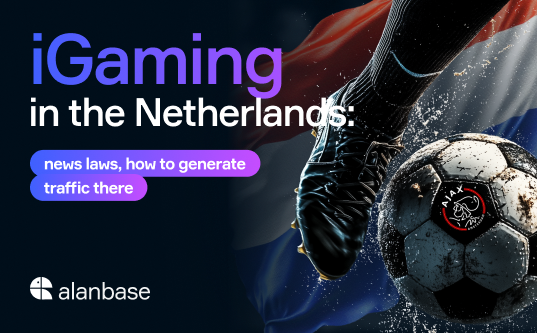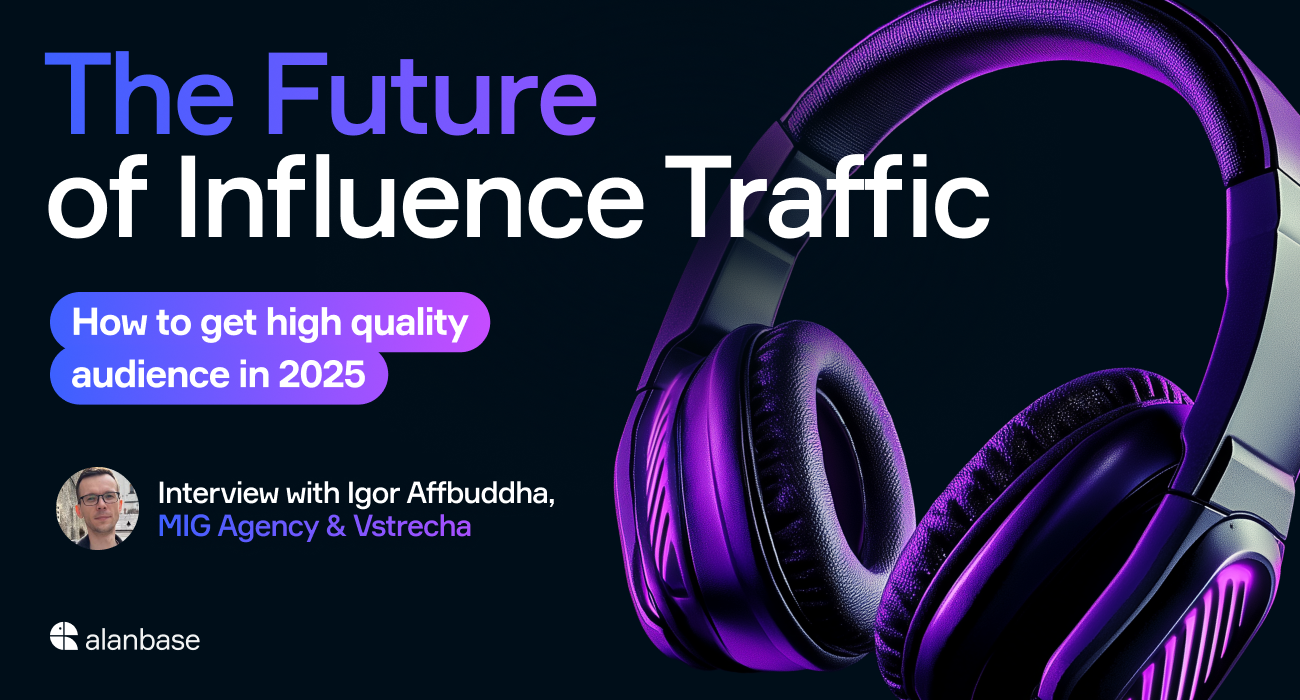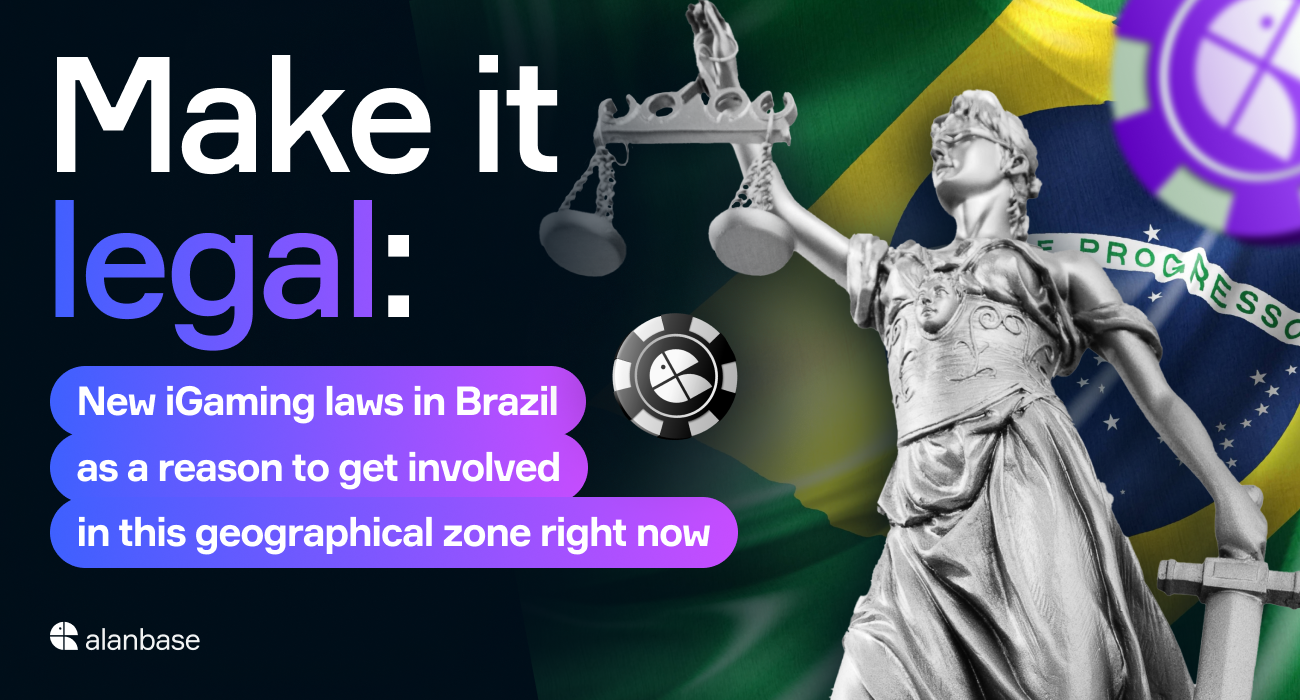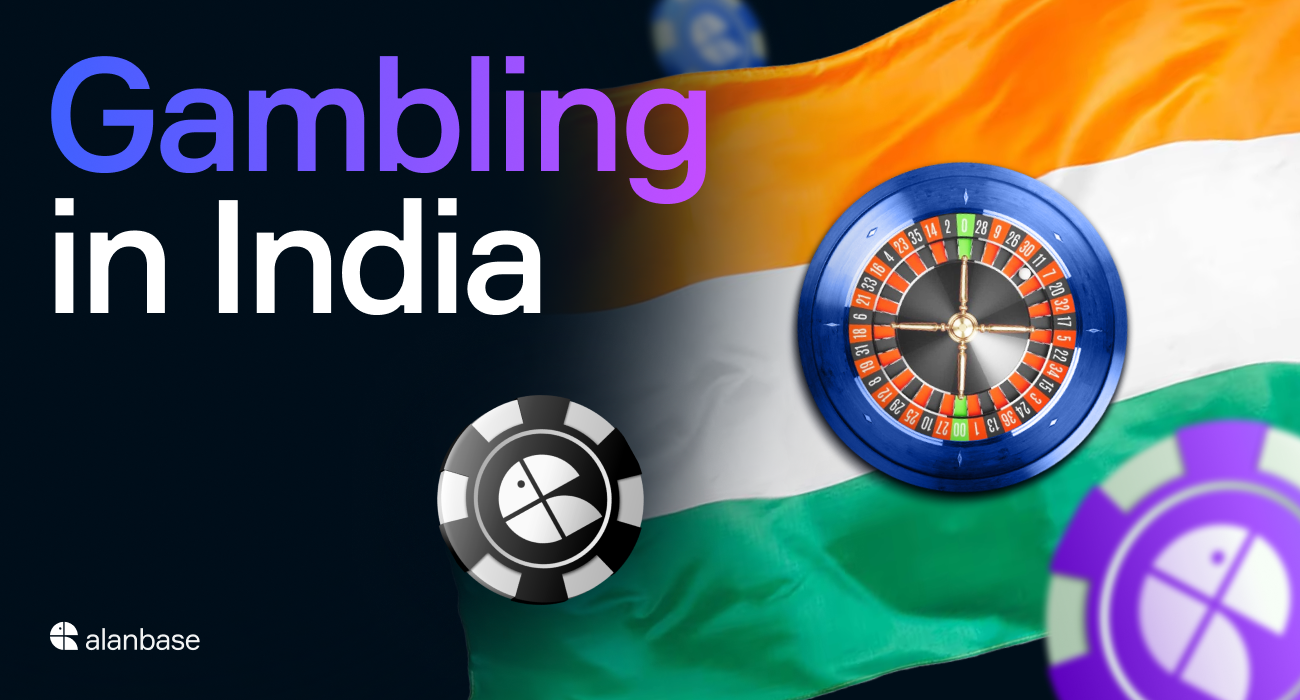Table of Contents
While many brands dream of expanding into Tier-1 countries, working with these markets is no walk in the park. The traffic is expensive, competition is fierce, and the regulations are tight, making money here takes serious effort. But the payoff is worth it: these audiences not only have disposable income but also a strong interest in iGaming.
Today, the Alanbase team is diving into one of Europe’s top-performing geos in terms of GGR, which is the Netherlands. We’ll show you why it’s worth getting into this market if you haven’t already, and how regulatory restrictions can actually work to your advantage.
Market Overview
Located in Western Europe, the Netherlands isn’t exactly vast — the country of master painters and football legends spans just 41,500 km². Still, it’s home to 17.9 million people, with population growth holding steady at 0.5–1% annually. The GDP per capita stands at an impressive $62,500.
In short, the Netherlands has serious iGaming potential, and the numbers back that up. According to analysts at Blask, in 2024, the Netherlands ranked among the top 4 countries worldwide by eGGR, reaching $1.8 billion. The market’s eFTD was around $2.8 million. On top of that, players here tend to have solid incomes — 30% earn between $37,000 and $53,000 per year. For comparison, average player income in Brazil is $7,000–$11,000, and in India, just $2,400–$6,000.
The market is growing fast. In 2017, iGaming revenue in the Netherlands was under €500 million. By 2024, it crossed the €1 billion mark, and experts from Statista (as cited by Delasport) project another €400 million increase over the next five years. Every segment of iGaming is thriving, from sports betting to online casinos and lotteries.
There are 96 gambling operators active in the Netherlands. Three of them crossed the $200 million eGGR threshold in 2024: Toto ($311M), BetCity ($204M), and Swedish Unibet ($309M). Unibet, in particular, has been a key player in the market for years. Back in 2022, the brand signed a sponsorship deal with Ajax, the country’s most successful and well-known football club.
Among the newer entrants to the Dutch market is Betsson, which entered in February 2024 through a €27.5 million deal. The company has solid prospects of recouping the investment as early as 2025 — its GGR from Western Europe in 2024 already hit €50 million. So yes, if you’re planning to scale in this geo, be ready for serious competition.
What Do People Bet On?
When it comes to sports betting, the top pick in the Netherlands is — unsurprisingly — football! The country has a rich and proud football tradition: the national team consistently makes waves at World Cups and European Championships, and Dutch clubs regularly compete in the Champions League, sometimes pulling off miracles (like Ajax’s incredible run to the semifinals in 2019). So it’s no surprise that Dutch gamblers gravitate toward football — aside from the local Eredivisie, they’re also big on leagues in England, Spain, Italy, and Germany.
But football isn’t the only game in town. Dutch bettors also love wagering on Formula 1, hockey, volleyball, UFC, tennis, and cycling. In short, the Netherlands has a vibrant sports culture, giving players a broad selection of betting options.
Casinos are no less popular in the tulip kingdom — according to Statista, revenue from online casinos in 2024 even slightly outpaced that of sports betting. That’s largely because slots are easy to understand and come in a wide variety of themes and features.
Dutch players tend to prefer the classics: games like blackjack, roulette, baccarat, and craps are perennial favorites. Online casinos offer dozens of versions of these games from different providers, so everyone can find something to their taste.
Here are the 3 most popular slot games in the Netherlands:
- Simply Wild by Stakelogic – Arguably the country’s most iconic slot game. It tops Google searches for slot machines in the Netherlands.
- Random Runner by Stakelogic’s main market is the Netherlands; no other country has embraced this game as strongly.
- Mega Joker by NetEnt – A retro-style slot that owes its success to something other than looks: it has a 99% payout rate, which has drawn the attention of savvy Dutch players.
So, in a nutshell, Dutch gamblers are retro fans who value simplicity.
Current Advertising Rules
Now that we’ve got a handle on audience preferences and the competitive landscape, it’s time to understand the advertising laws. At first glance, the rules seem fairly standard: don’t encourage gambling addiction or target minors. But the Netherlands goes further.
For instance, you can’t use celebrities in ad creatives — the government takes their public image seriously. So, no, you can’t put Cristiano Ronaldo in your banner or sign Virgil van Dijk as a brand ambassador for the Dutch market.
Other rules include:
- No targeting vulnerable groups (e.g., disabled individuals, pensioners, migrant workers).
- No advertising to people aged 18 to 24 (in the Netherlands, legal iGaming starts at 25).
- No using cartoon or comic book characters in ads.
- And when it comes to bonuses, you can’t create time-pressure offers that might trigger impulsive behavior.
Potential Future Restrictions
Yes, Dutch advertising regulations are strict, but the government still doesn’t think they go far enough. Authorities consider problem gambling to be at a critical level, and they might not be wrong: for example, 5,000 players have demanded that Unibet, PokerStars, Betsson, and others return €100 million they lost before iGaming was legalized.
Conservative parties are even pushing for a complete ban on online gambling ads, arguing they “were naive and underestimated the internet’s influence on gambling addiction.” Spoiler: a full ban is unlikely — the debate’s been going since 2023, and nothing concrete has come of it yet.
Still, restrictions may increase for certain online platforms, such as banning gambling ads on all sites except sports-related ones, which rely on that ad revenue to operate.
A ban on iGaming ads during Eredivisie matches, following the lead of the English Premier League, has already been enacted.
How to Adapt
So, anyone planning to target the Netherlands might wonder: What do we do with all these restrictions? The answer is simple—look for ways around them, especially since other countries have already devised clever workarounds.
One example comes from Kazakhstan. In September 2024, the country passed a law allowing betting ads only in sports media. Now, operators there are launching their own sports media platforms and getting them accredited. For instance, there’s the YouTube channel “Futbol Zholy”, where the Olimpbet brand is prominently featured on screen:
In short, bypassing such restrictions isn’t a big issue.
A workaround was devised in neighboring Belgium for iGaming ads in football. In January 2025, new rules limited bookmakers’ placements: their logos on player shirts couldn’t exceed 75 cm².
The clubs responded with surrogate advertising: gambling operators launched or partnered with sports websites and charitable foundations. Since Belgian law doesn’t ban ads from these entities, their branding now legally appears on players’ jerseys in the Pro League.
Another loophole has been used in Spain and Italy. There, iGaming ads are projected onto virtual pitchside billboards, visible to viewers outside the country, even though such ads are banned locally. That’s how Juventus struck sponsorship deals with Betera, Parimatch, and 10Bet. And all the contracts contain a key clause: the partnership does not apply within Italy.
Restrictions That Work in Our Favor
Not all of the Dutch government’s regulations are bad news for affiliate marketers — in fact, some of them can actually work to your advantage. For example, in early 2025, the KSA (Netherlands’ iGaming regulator) launched a major crackdown on unlicensed operators. Their goal for the year is to increase the market share of regulated operators to 90%.
To achieve this, they raised fines for advertising violations — from €500,000 to €2 million. These penalties apply to:
- Unlicensed iGaming operators
- Creators of advertising that violates legal standards
- Affiliates and internet providers working with grey-market brands
So, how does this help those looking to tap into the Dutch market? It’s simple: licensed, “white-hat” casinos and sportsbooks are moving into the spotlight. That means more tax revenue for the country and a more stable, attractive iGaming ecosystem.
Add to this the Netherlands’ strong sports culture, growing interest in slots, and excellent internet penetration (over 96% in 2025), and you’ve got a high-GGR market filled with solvent players — a prime opportunity to scale your campaigns.
And what do you need to successfully enter this market? A reliable affiliate platform for building and managing your program.
That’s where Alanbase comes in as a flexible, all-in-one solution that lets you track traffic, manage offers, oversee partners, and handle payouts from a single interface.
Want to see how it works? Book a free demo call with our team. Then, you’ll get 14 days of full platform access, no credit card required.





